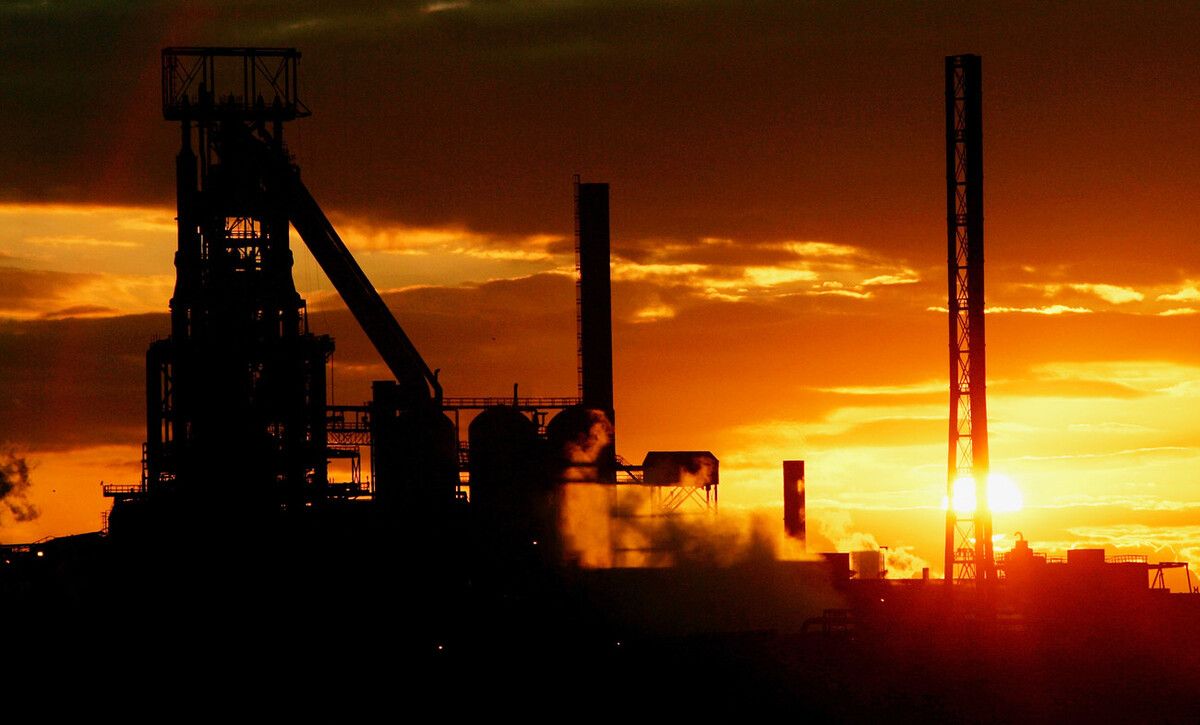
Green steel deal must not axe thousands of jobs
This would mean that steel production in South Wales continues and is decarbonised. But the electric arc furnace technology chosen by government and Tata would likely cause 3,000 job losses. This has sparked fears of a fresh wave of redundancies hammering the UK’s historic industrial heartlands.
Axing 3,000 jobs with no plan for the workers is not a Just Transition. Ripping the heart out of the Port Talbot community is not a Just Transition.
Trade unions believe that rapid climate action in line with science-based targets is essential. We need to cut the emissions of our heavy industries. The two blast furnaces in Port Talbot rely on coking coal and are massive carbon emitters. This cannot continue.
But climate action must take workers and communities with it. The Tata steelworks in Port Talbot employs 4,000 workers, providing quality jobs for generation after generation. Wages at the steelworks are 36% higher than the regional average – providing important income for the community as a whole. Slashing the workforce by three quarters will have a similar impact to the closure of the pit mines to coal communities in the 1980s. Decarbonisation that leaves workers by the wayside, that destroys communities, is unacceptable.
Climate campaigners should beware of welcoming a deal that slashes jobs and undermines a Just Transition, without real investment into alternative jobs.
Government and corporate decisions that devastate communities risk telling a false story – that climate action has to come at the expense of industrial communities. That workers have to be sacrificed to cut emissions. This risks playing into the hand of the far right groups those trying to draw divisions between workers and stoke a backlash.
It doesn't have to be that way. We can future-proof Britain's industries and jobs. Steel workers have been campaigning and marching for rapid decarbonisation of their plants – including moving blast furnaces away from coal. Plans proposed by unions to rapidly shift steel plants to zero carbon operations were developed.
Rapid decarbonisation can go hand-in-hand with protecting quality jobs and UK value chains - with the right investment and policies. At this week’s TUC Congress, TUC will launch updated analysis of the hundreds of thousands of UK manufacturing jobs that can be future-proofed in the UK introduces as ambitious clean industrial strategy like Biden’s - including jobs at Tata in Port Talbot.
Other countries are showing the alternative pathways that don’t trash communities and leave workers on the scrapheap. In Spain, Canada, Sweden, Netherlands and in the USA, governments and steel companies are investing into and building green hydrogen furnaces to produce primary steel. These are direct-reduced iron units that use green hydrogen instead of coal to extract iron from ore. This is ambitious climate action, that benefits workers and communities rather than leaving them by the wayside.
Meanwhile, the UK government has side-lined workers interests and voices in its secretive negotiations with Tata steel. This is despite the government committing to Just Transition principles at COP26. The government’s own Green Jobs Taskforce recommended that high carbon industries receiving government funding should prepare mandatory ‘Just Transition Agreements’ negotiated with their workforce. Tata look set to receive significant government funding, but workers look like they will be engaged after the crucial decisions have been made.
Workers want to be at the heart of planning and delivering a rapid and just climate transition. To do that they need to be around the table when decisions about technology and investment are made. It means decarbonisation deals need to include investment to protect existing jobs and to create new jobs of the same quality that workers can transition into. A “Just Transition” is not a slogan , but a tangible experience of livelihoods, job security and community wellbeing.
As Jacqueline Thomas, a union rep at Tata Steel has said “I’ve seen first-hand the impact of industries lost. Communities like Aberfan, Merthyr Vale or Ebbw Vale, just three miles from where I lived, were destroyed by crude industrial policies, and left ill-equipped to handle the transition away from coal. As a child I remember going with my mother to collect food for the striking miners. I did it once, I don’t want to do it again. We need a greener steel industry, a just transition, and we’ve no time to waste.”
Stay Updated
Want to hear about our latest news and blogs?
Sign up now to get it straight to your inbox

